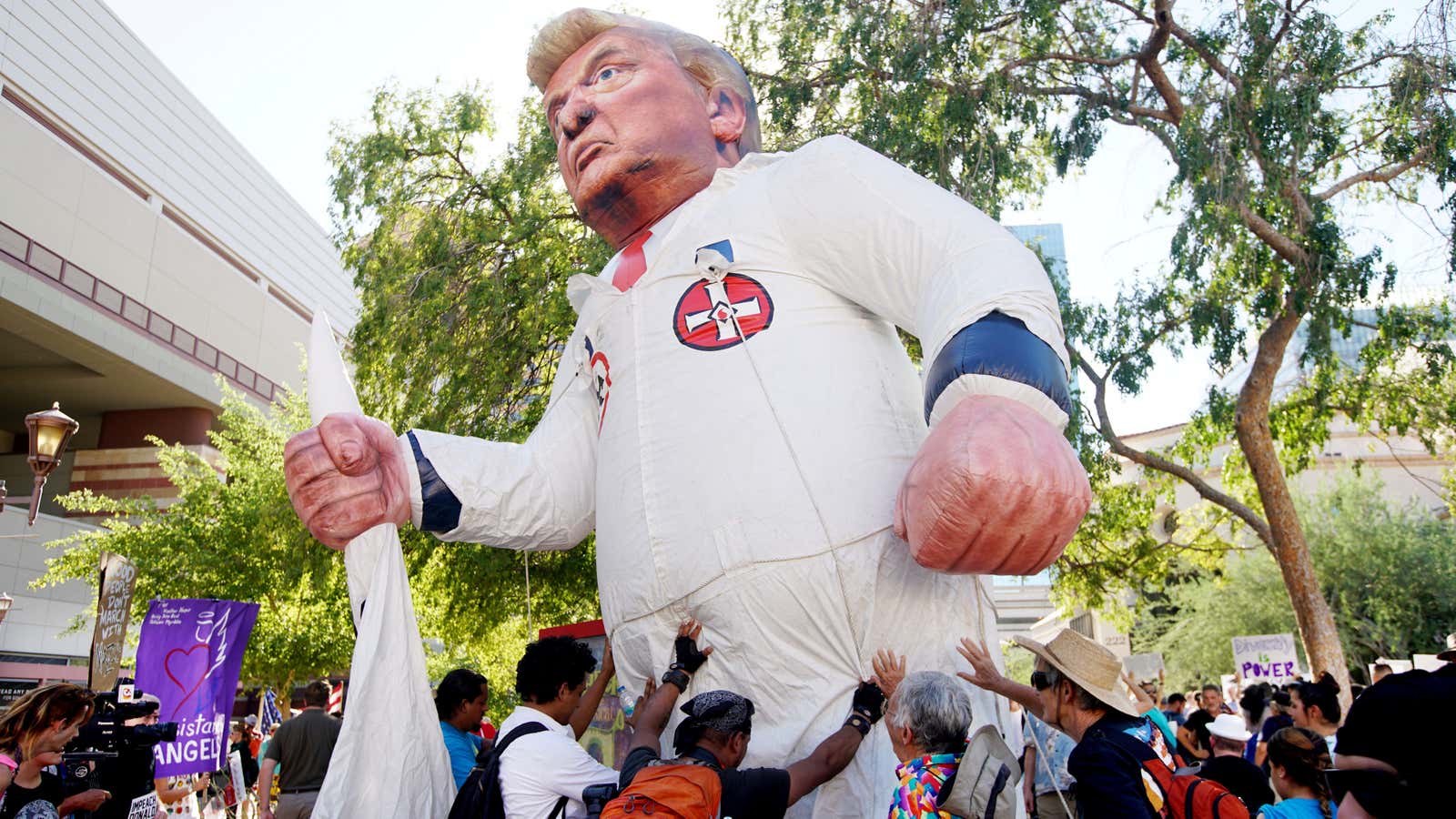The Trump administration’s legislative agenda is in shambles. The White House is losing people faster than a series of The Apprentice. Obamacare has not been repealed; the wall is not being built; jobs are still moving to Mexico; and Donald Trump has the lowest approval rating of any president so early in the first term.
But at his rally in Phoenix, Arizona, on Aug. 22, he presented himself—and was treated—as the most popular and effective president in recent memory.
Employing, perhaps unconsciously, a traditional propaganda technique known as “the big lie” (falsehoods should be big, and defended vigorously), Trump asserted not only that he’s been incredibly successful in implementing his policy agenda but that his goal has always been to unite Americans. “Our movement is a movement built on love. It’s love for fellow citizens,” Trump said, before going on to viciously attack the media (the “source of the division in our country”), undocumented immigrants, gangs (“animals”), the Democrats, and Republican senators (from Arizona, no less).
As he appeared to go off script, liberal and centrist commentators on TV described him as “unhinged.” But this is likely not what his supporters saw. And it was his supporters, not outraged liberals, for whom the speech was intended.
It’s a tried strategy of his: “When he finds himself under attack or slipping in popularity,” as the Washington Post noted (paywall), “he often holds a rally in a place like this: a diverse blue city that’s home to liberal protesters but surrounded by red suburbs and rural towns filled with Trump supporters who will turn out in droves.” The resulting confrontations between supporters and opponents seem to be an essential part of pumping up Trump’s base.
In a crowd of his supporters Trump can control the narrative, amongst people who believe his word over reported news. In his view, he did nothing to fan tensions after the white-supremacist demonstrations in Charlottesville; it was the media that did so by not accurately reporting his message. To prove his point, Trump read from a transcript of his remarks following Charlottesville, repeating what he considered incontrovertible evidence that he had condemned the white supremacist marchers from the very beginning. TV anchors on CNN and MSNBC pointed out to their viewers that he had skipped the part that had made his remarks so controversial—his blaming the violence “on many sides.” But in the convention center, his version of reality held sway.
That was all he needed. By keeping his base pumped up, Trump maintains his political leverage in a Republican party increasingly hostile to his erratic and divisive method of governing. Though Trump supporters are a minority within the country, they are a large and motivated subset of Republican voters. Rallies like the one in Phoenix show the party that it can’t afford to mess with him. That’s the only message they need to send. If they seem “unhinged” to the rest of the country, it doesn’t matter one bit.
